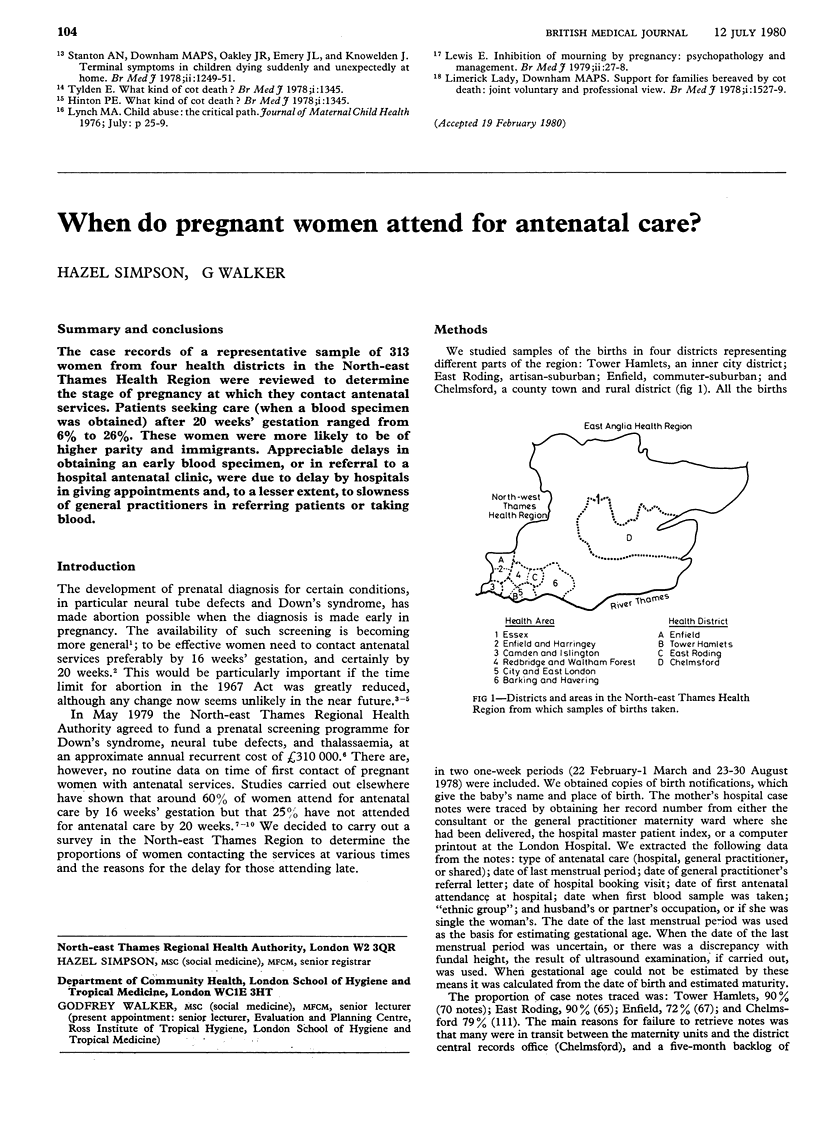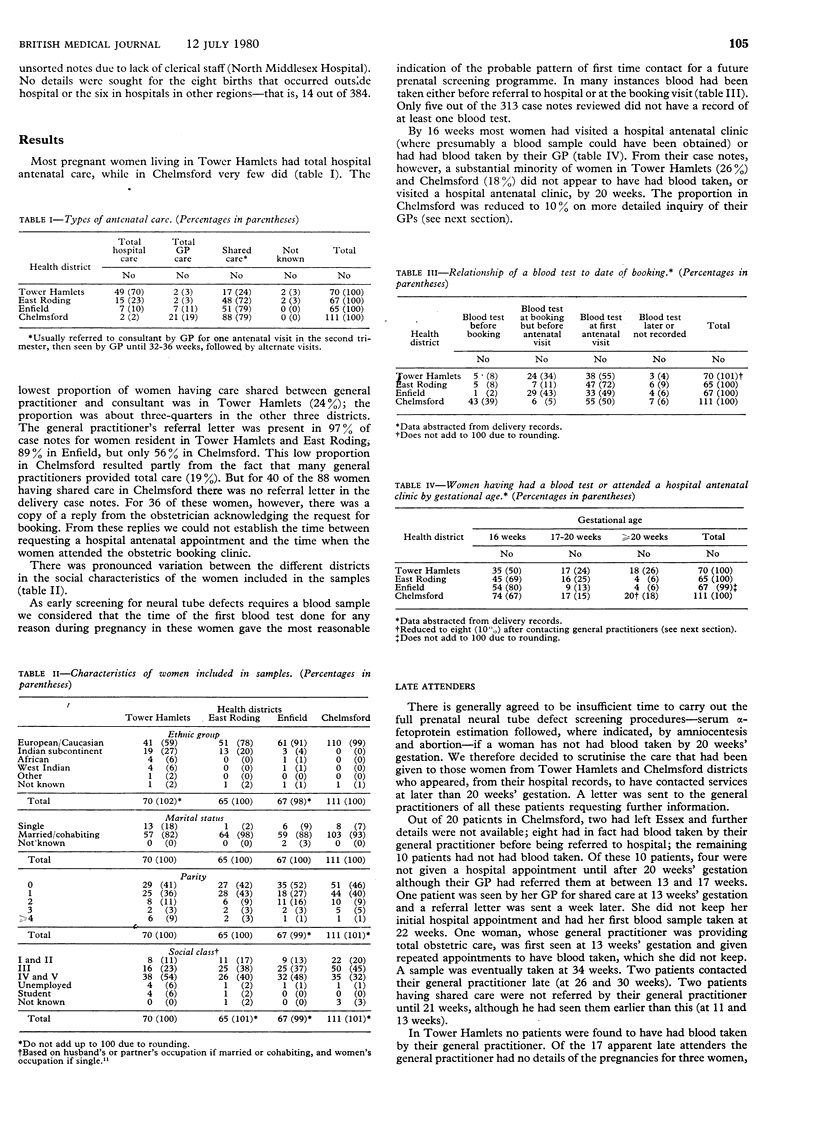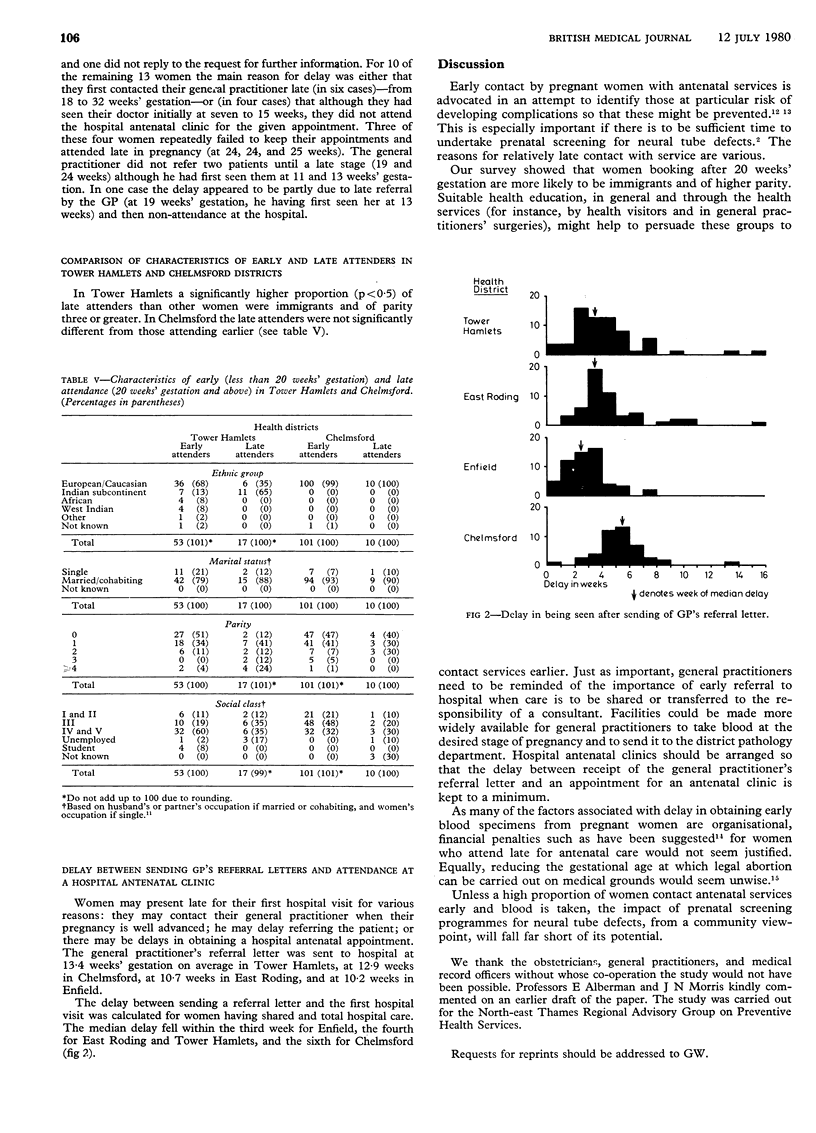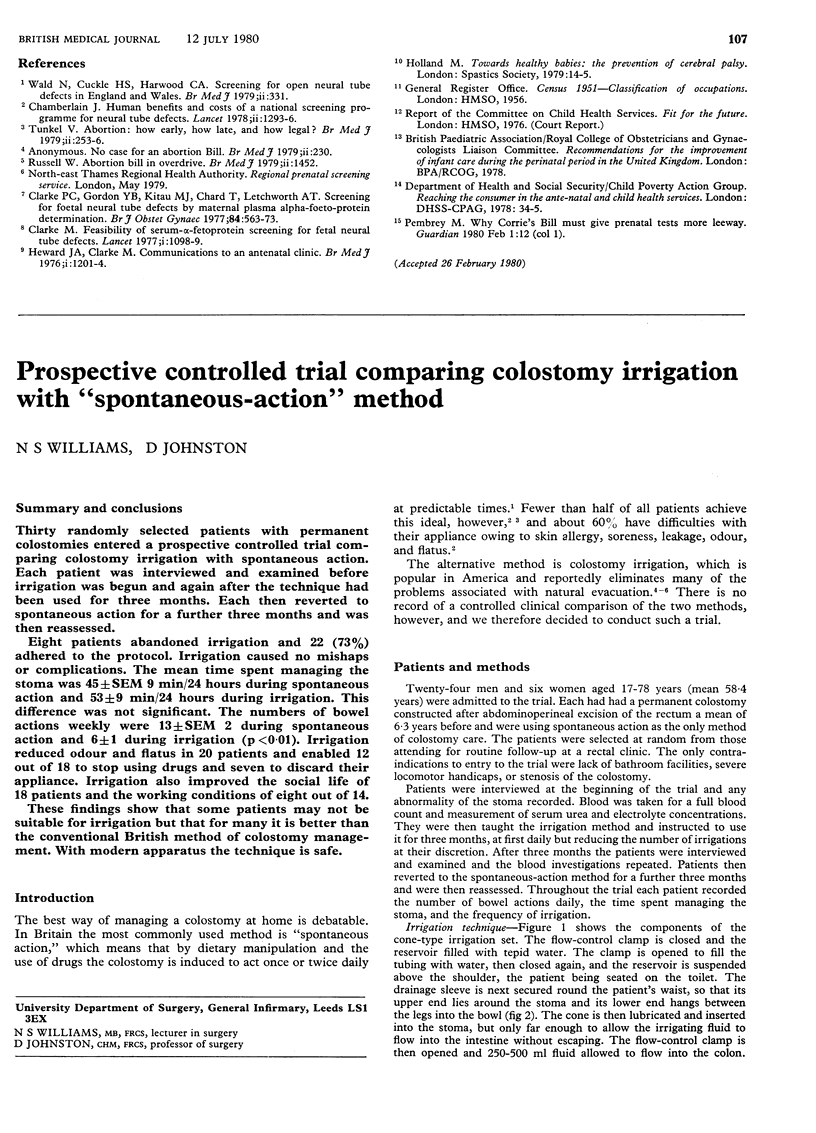Abstract
The case records of a representative sample of 313 women from four health districts in the North-east Thames Health Region were reviewed to determine the stage of pregnancy at which they contact antenatal services. Patients seeking care (when a blood specimen was obtained) after 20 weeks' gestation ranged from 6% to 26%. These women were more likely to be of higher parity and immigrants. Appreciable delays in obtaining an early blood specimen, or in referral to a hospital antenatal clinic, were due to delay by hospitals in giving appointments and, to a lesser extent, to slowness of general practitioners in referring patients or taking blood.
Full text
PDF



Selected References
These references are in PubMed. This may not be the complete list of references from this article.
- Chamberlain J. Human benefits and costs of a national screening programme for neural-tube defects. Lancet. 1978 Dec 16;2(8103):1293–1296. doi: 10.1016/s0140-6736(78)92053-6. [DOI] [PubMed] [Google Scholar]
- Clarke M. Feasibility of serum-alpha-fetoprotein screening for fetal neural-tube defects. Lancet. 1977 May 21;1(8021):1098–1099. doi: 10.1016/s0140-6736(77)92346-7. [DOI] [PubMed] [Google Scholar]
- Russell William. Abortion bill in overdrive. Br Med J. 1979 Dec 1;2(6202):1452–1452. doi: 10.1136/bmj.2.6202.1452. [DOI] [PMC free article] [PubMed] [Google Scholar]
- Tunkel V. Abortion: how early, how late, and how legal? Br Med J. 1979 Jul 28;2(6184):253–256. doi: 10.1136/bmj.2.6184.253. [DOI] [PMC free article] [PubMed] [Google Scholar]
- Wald N., Cuckle H. S., Harwood C. A. Screening for open neural-tube defects in England and Wales. Br Med J. 1979 Aug 4;2(6185):331–331. doi: 10.1136/bmj.2.6185.331. [DOI] [PMC free article] [PubMed] [Google Scholar]


